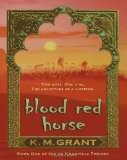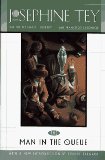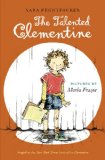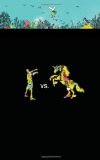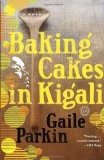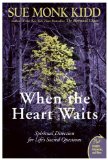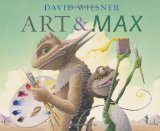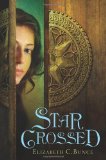Open Letter to the Fairfax County Board of Supervisors
Today I sent the letter below to the members of the Fairfax County Board of Supervisors, along with a copy of This Book Is Overdue! How Librarians and Cybrarians Can Save Us All, by Marilyn Johnson, in support of restoring Library funding. I would love to get lots of comments from readers who support libraries. Please read, comment, and share!
Dear Supervisors,
I am writing to speak up on behalf of Fairfax County Public Library. Please consider restoring some of the funds and hours that were cut in the last two years.
Back in June, my job as Youth Services Manager at Herndon Fortnightly Library was cut, and I was transferred into the Office for Children as a Management Analyst. Although it was the same pay grade, the new job had much less responsibility, much less challenge, did not supervise anyone, and did not require a Master’s degree. Most telling, though, I did not feel that I was doing nearly as much good for the people of Fairfax County as I could daily in my Librarian job.
Shortly after the RIF, I wrote a review of the book, This Book Is Overdue! How Librarians and Cybrarians Can Save Us All, by Marilyn Johnson. The book made me proud to be a Librarian by calling, as it pointed out the many ways librarians serve the people of their communities. It pointed out that in a recession, libraries are more necessary than ever. I said in my review, “This book is indeed overdue! I wished so much that I could afford to send a copy to each member of the county Board of Supervisors!”
In January, the author herself found my review online. She told me she would be happy to donate copies of the book to send to the Fairfax County Board of Supervisors. So I am now presenting you with this book, signed by the author. I’ve marked a few passages that talk about how librarians benefit the communities where they work.
Along with this gift, I want to make three points about the 30% library budget cuts of the past two years.
1. If Education is truly a high priority in Fairfax County, then we need to have strong libraries to support that education. Students need internet access to do more and more of the assignments. For many students, the Library is where they get that access. But that’s only the beginning of how we support education. The Library still supports students in the traditional way of providing resources for reports, science projects, and supplemental materials. Studies have shown that library summer reading programs make a huge difference in students retaining what they’ve learned during the school year.
But we don’t only serve students who attend the public schools. We serve homeschooled children and those who attend private schools. We serve college and university students. We serve adults who want to teach themselves something new or find out how to complete a project. We serve people who want to acquire new job skills or prepare for certification tests. We serve seniors who suddenly have to use a computer to prepare their taxes. We serve immigrants who want to learn English. We serve people who want to learn about current issues and vote as informed citizens. We serve parents of preschoolers and provide programs that build early literacy skills, making them more ready for success when they start school.
2. If Human Services are truly a high priority in Fairfax County, then we should not cut library funding. Sadly, the people the cuts hurt most are the people who are least likely to speak up. In libraries, I often see homeless regulars. They are too proud to ask for help from more traditional social services. The shelters don’t let them stay there during the day. But they spend their days with dignity at the library, and do not have to apply to get that help. If their local branch is closed, they will not be able to just run over to the nearest regional branch.
I also think of the many people who come to use the library computers to apply for jobs. Most jobs now require an online application, and we see several people applying for such jobs every single day at even the smaller libraries. Or the middle school students who use the library to do homework while their parents are at work. They can’t just go to another branch, either.
3. In the overall scheme of the county budget, the amount cut from the Library was tiny. This was glaringly obvious when last year’s budget carryover was eight times the amount that had been cut from the Library. Conversely, a tiny amount going back to the libraries now will make a huge difference in the service we are able to provide.
Libraries provide vital help to the poor – but they also help the rich! Studies have shown that proximity to a library even increases property values. An investment in libraries provides benefits both tangible and intangible.
Please consider restoring some of the Fairfax County Public Library budget.
Regardless of the decision you make on the budget, I hope you will enjoy this signed copy of This Book Is Overdue! It’s a fun look at how librarianship is changing – and vitally necessary – in the 21st Century. I should add that I am happily back in FCPL as of November, when a Librarian retired. So I’m not making this appeal for my own job, but for the people of Fairfax County. I did write this letter on my own time, expressing my own opinions as a resident of Fairfax County. I am also planning to post the letter on my blog, www.sonderbooks.com/blog.
Empower Fairfax County Public Library to serve your constituents more effectively! “In tough times, a librarian is a terrible thing to waste.”
Sincerely,
Sondra Eklund
Here are some links to more articles in support of libraries:
Scott Turow, in an article “Let-Them-Eat-Cake Attitude Threatens to Destroy a Network of Public Assets,” says, “Widespread public access to knowledge, like public education, is one of the pillars of our democracy, a guarantee that we can maintain a well-informed citizenry.”
Philip Pullman writes in “Leave the Libraries Alone. You Don’t Understand Their Value,” “The public library, again. Yes, I’m writing a book, Mr Mitchell, and yes, I hope it’ll make some money. But I’m not praising the public library service for money. I love the public library service for what it did for me as a child and as a student and as an adult. I love it because its presence in a town or a city reminds us that there are things above profit, things that profit knows nothing about, things that have the power to baffle the greedy ghost of market fundamentalism, things that stand for civic decency and public respect for imagination and knowledge and the value of simple delight.”
Roberta Stevens wrote an article titled “Technological and Economic Shifts Have Only Made Libraries More Valuable.” She says, “Today’s challenging economy demands strategic investments. While the job market continues to recover, one of the best uses of public and private funds is to help ensure that people are digitally literate and are improving their employment skills.”
What do you think? I’d love it if this gift of books, through the generous donation of Marilyn Johnson, would get people speaking up on behalf of Libraries.
